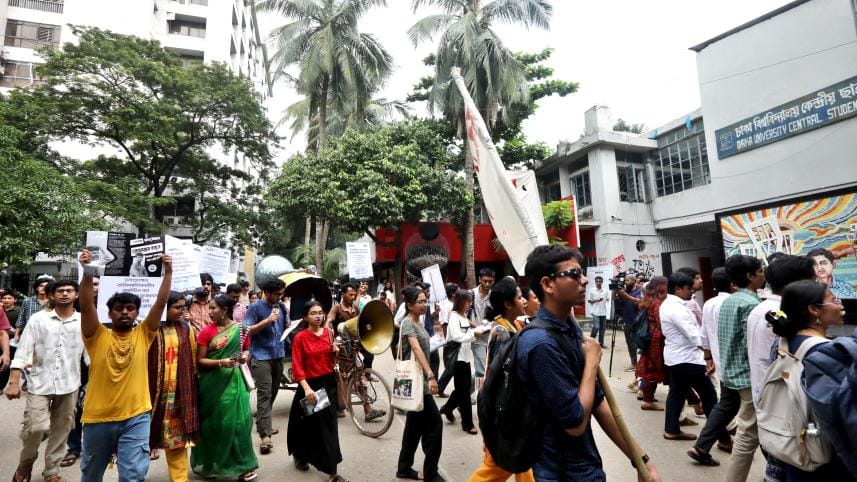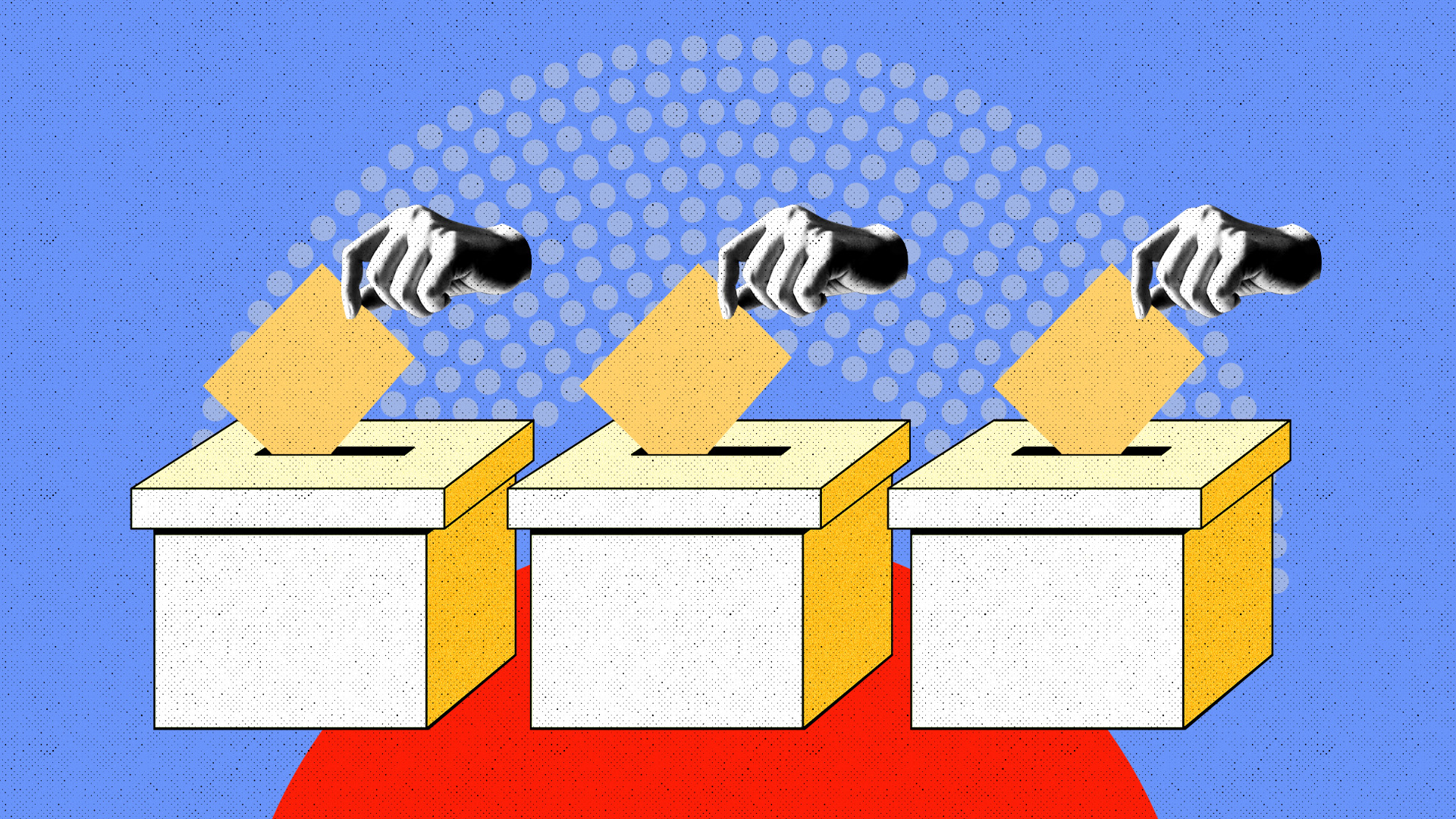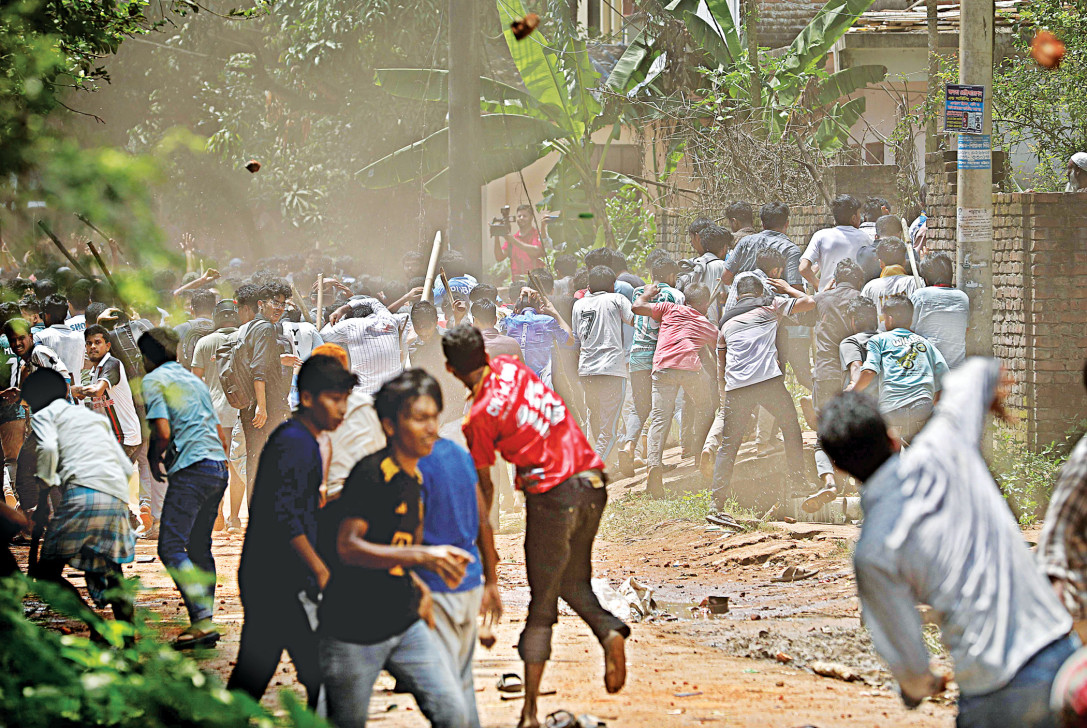DUCSU election: Will informed voting triumph over inherited stigmas?

In Bangladesh's conflictual political history, few strategies have been persistent with the notion of politics of equating. Among these, one entails framing rival political or student organisations as morally equivalent by linking them to controversial legacies, regardless of generational shifts or changing political realities. Two cases illustrate this alleged politics of equating vividly: the Bangladesh Islami Chhatrashibir and its association with Bangladesh Jamaat-e-Islami, and the tendency to equate the Bangladesh Jatiotabadi Chatra Dal (JCD), the student wing of the Bangladesh Nationalist Party (BNP), with the Bangladesh Chhatra League (BCL), the student wing of the now-banned Awami League (AL). These narratives have potentially shaped how students will vote in the Dhaka University Central Students' Union (DUCSU) election scheduled for September 9, how these parties are perceived on campus, and how legitimacy is contested in Bangladesh.
The case of Shibir has long been described in the shadow of 1971. For decades, it has borne the burden of Jamaat's controversial role during the Bangladesh Liberation War, when Jamaat sided with Pakistan and many of its leaders were involved in war crimes, leaving deep scars on the national psyche. Consequently, Shibir members have often been branded as heirs to that legacy and accused of being anti-liberation, even though the current members were born decades after independence. Today's activists often argue that they should not be condemned for crimes they did not commit. However, they have not strongly contested Jamaat's historical role, at least publicly.
Shibir also carries a legacy of campus violence. Allegations of extreme misconduct have at times exceeded those associated with other student wings. For example, reports of cutting the veins of the legs and feet of people who angered them underscore the severity of its past abuses.
Moreover, a recent controversy reignited debate over Shibir's symbolic positioning as a DUCSU election candidate from a Shibir panel criticised Bir Shreshtho Matiur Rahman in a Facebook post. The celebrated Liberation War hero attempted to hijack a Pakistani air force jet to join the Mukti Bahini but died when Pakistani trainee pilot Rashid Minhas resisted, causing the crash. While Matiur is honoured as one of Bangladesh's highest-decorated freedom fighters, the Shibir candidate glorified Minhas.
In contrast, the case of JCD presents a different dynamic. JCD, the student wing of the BNP, has long been compared with the AL's student wing, BCL, in the post-July uprising political narratives—particularly by Shibir and anti-BNP circles—which portray both groups as equally responsible for campus violence, extortion, and factionalism.
Historically, both JCD and BCL have engaged in violent clashes and coercive politics within universities. However, in practice, JCD suffered the most during the last Awami League regime, facing severe repression and limited operational space. That said, its own past is not free from allegations of similar misconduct during periods when the BNP was in power. This equivalence has been strategically effective in stigmatising JCD. Its opponents frame it as no better than BCL when it comes to undermining academic spaces and intimidating dissenting voices.
Following the unprecedented July uprising and the subsequent collapse of the previous regime, Bangladesh's political landscape has shifted dramatically. The BCL has been banned, and many of its leaders are now facing trial over allegations of widespread violence. This development serves as a strong deterrent for any student organisation seeking to dominate campuses through intimidation or coercion.
Despite this shift, JCD continues to carry the stigma of being equated with BCL—a burden that complicates its attempt to re-establish political legitimacy among students. The politics of equating goes beyond historical memory. It is a strategic tool for controlling narratives of patriotism, legitimacy, and nationalism. By terming each other as "anti-liberation" and "torturer and extortionist," both groups seek to influence student perceptions and voting in favour.
The historic event of 2024 disrupted the long-standing power dynamics of student politics, yet the narratives of equating persist. While Bangladesh has attempted to reconcile its political history, much of it occurred through political manipulation. Many argue that without a process of national apology and responsibility, the inherited wounds of the past remain unhealed. This issue is particularly critical in student politics, which has long shaped Bangladesh's national political trajectory.
For Bangladesh to progress, it is essential to re-examine inherited labels and evaluate today's student movements based on their current actions as well as their historical burdens. The younger generation is increasingly rejecting the cycle of campus violence. In the current transitional period, with the BCL banned and the emergence of a political vacuum, the stakes are even higher. This historic moment of the DUCSU election calls for conscious, informed voting, urging students to prioritise historical awareness, democratic values, pluralism, gender equality, and future-oriented perspectives. Breaking free from the politics of equating requires critical historical engagement to confront memories, restoring university autonomy by ending partisan dominance, and encouraging intergenerational dialogue to redefine national interest and foster inclusive nationalism. Ultimately, Bangladesh's democratic future depends on whether political actors can embrace accountability and apology, which together may open pathways for empathy, fairness, and reconciliation, rather than perpetuating inherited stigmatisation, equating, and divisions.
Dr Sazzad Siddiqui is associate professor and acting chairman at the Department of Peace and Conflict Studies, Dhaka University. He can be reached at sazzadhsiddiqui@du.ac.bd.
Views expressed in this article are the author's own.
Follow The Daily Star Opinion on Facebook for the latest opinions, commentaries and analyses by experts and professionals. To contribute your article or letter to The Daily Star Opinion, see our guidelines for submission.




 For all latest news, follow The Daily Star's Google News channel.
For all latest news, follow The Daily Star's Google News channel. 

Comments